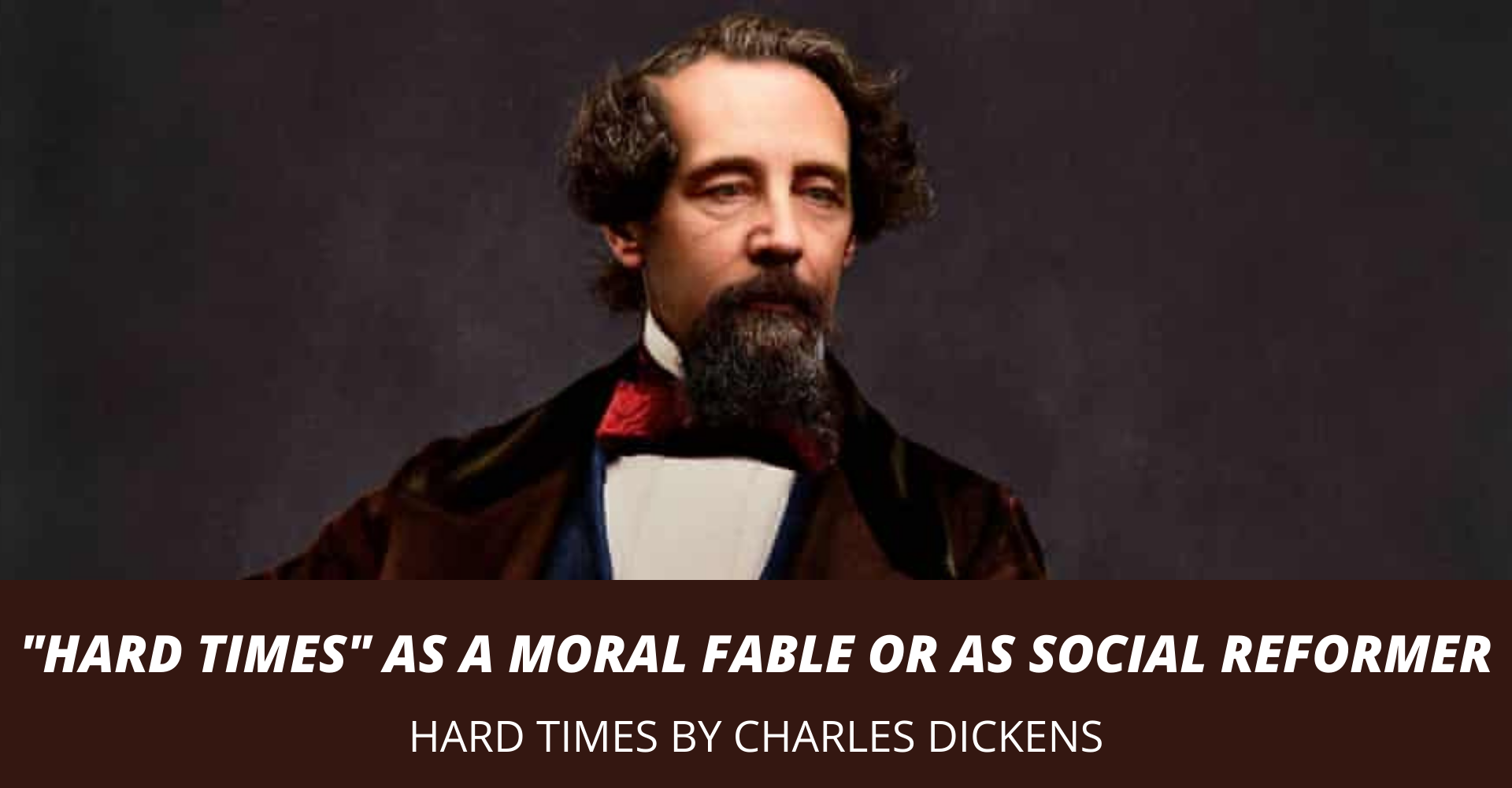In “Hard Times” Dickens exhibits his artistic feet and exposes the falseness of the utilitarian attitude to life that characterises the Victorian age. It exposes satirically the evils of industrialism and the great miseries that followed in the wake of rapid industrialization. Dickens freely attacks what he regarded the evils afflicting Victorian society. He criticises the educational theory which was based on facts and statics. The wisdom of the mind was of the greater importance that the wisdom of heart. It was fact und bare fact that were worshipped and idolised. Dickens bitterly lashes out at the motive of self interest promoted by industrialism and utilitarian. He also attacks the relationship labour and capital and unfeeling of factory owner. The novelist satires against all repression of human heart spirit whether the repression is due to class room teaching, the constitution, the law or the principles of political economy. Dickens’ purpose was not only to attack mid-nineteen century utilitarianism but also it aimed all types of social vices.
Wretched condition of worker brushed by capitalist. Gradgrind and Bounderby represents the worst evils of capitalistic life. Gradgrind is a practical citizen of lake town, out to out a practical man. He believes in facts and statics and nothing else. An instruction to a new school master to teach about facts for facts are needed in life. He instructs his master root out everything from the mind of his pupils and to plant only facts in their mind. It is his conviction that the mind of human beings may be described as reasoning animals and can be only formed up on the facts. Gradgrind says to school master “stick to facts, Sir”. Gradgrind is a man of reality and a man of facts and calculation. He always keeps the principle in his mind that two and two are four. He looks upon the boys and girls in the classroom as vessels or pitchers which are to be filled with facts. In Gradgrind, Dickens criticises not only contemporarily industrialism but also the utilitarianism political economy of the time. In Grad, there is no room for imagination, fancy and emotions. He attaches much importance to Bitzer’s definition of horse.
In “Hard Times” Dickens not only claims at the too much materialism and an utilitarian philosophy and outlook of the people who worship money and mammon but also tries to throw light on the importance of moral fable. In this novel Dickens has severely criticised the evils and vices of Victorian society. In order to give a concrete shape to his moral purpose, Dickens used characters as symbols. Almost every character in this novel is an embodiment of a certain ideal. In fact, there are two of symbolic characters, one group symbolising certain objectionable features of Victorian life and the other group symbolising certain moral qualities which we heartily approved.
A moral fable is a story full of morals and the purpose of the writer of a fable is to teach morals. Similarly, a morality play is a play with great deal of instructions and morals. Although “Hard Times” is not a moral fable in a traditional serve yet it has a deep and moral intention. It’s characters are symbols of traits. To deepen the moral purpose Dickens has used the characters as symbols of moral traits. In fact, there are two groups of symbolic characters symbolising respectively the good and bad as poets of Victorian life. The Evil and Abuses symbolised by the one group of character. Grad symbolises the utilitarian theory of education. He lays excessive emphasis on facts and statistics and he has disregard for the values of and instincts, sentiments and fancy or imagination. It shows that his system of education will lead to disastrous results. Bounderby, banker and manufacturer is a symbol of the utilitarian economic theory.











